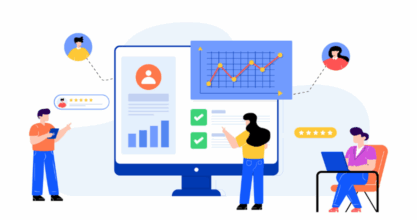Facebook updates: latest changes to take into account
Facebook, now part of the Meta family, has recently rolled out several updates poised to significantly impact the landscape for marketers and business owners. In this article, we’ll delve into the latest trends in social media marketing, specifically within this particular social platform, and their implications for the marketing world.
#1: Ad-Free Facebook subscriptions
In response to the European Union’s Digital Services Act, Meta is exploring implementing a paid monthly subscription model for ad-free versions of Facebook as well as Instagram. While this may address privacy concerns, it raises questions about the future of personalized ads. Many users are willing to accept relevant and personalized ads that enhance their online experiences. The introduction of a subscription model, while seemingly convenient, may disrupt the balance between advertising revenue and user experience. This may have implications for advertisers who rely on these platforms, as the adoption of subscriptions could impact the reach of ads. Many marketers believe that instead of resorting to paid subscriptions, Meta should focus on showcasing the benefits of personalized ads and the value they bring to the user experience. According to a Wall Street Journal report, the plan would charge around €10 per month for desktop access or €13 on mobile for each account.
#2: Multiple personal profiles
Meta is allowing users to create multiple personal profiles, each with a unique feed. This change represents a significant departure from the previous policy, which prohibited multiple profiles. Users can now create different profiles for business and personal use, enabling them to connect with professional contacts, join industry groups, and see relevant ads on their business-focused profiles. Multiple profiles can be used to segment interests and communities, providing opportunities for marketers to target different audience segments. Businesses can create specialized profiles tailored to specific industries or niches. However, the success of this feature depends on users’ willingness to put in the effort to create and maintain multiple profiles.
#3: Meta Verified for business accounts
Another of the latest trends in social media marketing is Meta introduced a subscription service that allows businesses to purchase verified badges for their Facebook accounts. This service offers benefits such as account security, priority support, and increased visibility in searches. These badges can be particularly beneficial for businesses seeking to establish credibility and enhance their online presence. According to Meta, “Meta Verified is built to help businesses more easily stand out on our apps and build confidence with their customers, including letting their customers know they’re chatting with the right business”. Meta Verified business subscriptions will be available for purchase on Facebook in select test countries. Monthly subscriptions start at $21.99 USD/month per Facebook page or Instagram account, or $34.99 USD/month for both.
#4: AI Experiences
Meta is rolling out AI-powered stickers and editing tools across its apps. This includes Messenger, Instagram, Facebook Stories, and WhatsApp. The introduction of Meta AI, a new AI assistant, aims to provide real-time information and generate photorealistic images from text prompts. Additionally, 28 AI chatbots with unique personalities, including some voiced by celebrities, are being introduced. While these AI chatbots have the potential to provide advanced conversational experiences, questions remain about their practicality and appeal. Users typically turn to AI for efficiency and convenience, and it remains to be seen whether these personalized chatbots can deliver on these expectations. The success of these AI chatbots will depend on whether they offer utility or novelty.
#5: Meta Ads
Another notable update in social media marketing is the introduction of Meta’s new budget scheduling feature for ads on Facebook and Instagram. This feature empowers advertisers to optimize their ad spending in response to anticipated traffic spikes or promotional events. Marketers can now set higher daily budgets during peak sales periods, such as Black Friday or other special promotions. What’s particularly appealing is that once the promotional period concludes, the budget reverts automatically to its initial daily amount without requiring manual adjustments. This feature is a game-changer for advertisers, offering newfound flexibility and responsiveness in budget management. No longer are marketers confined to static schedules; they can now dynamically allocate resources to match the demand, ultimately resulting in more effective ad campaigns.
The recent Facebook updates introduced by Meta offer both opportunities and challenges for marketers. These changes provide increased flexibility in ad management, the potential for personalized subscriptions, and advanced AI experiences. As marketers, we should adapt our strategies to leverage these updates while keeping a close eye on user preferences and market dynamics. We’ll keep you posted on more of the latest trends in social media marketing, so make sure to visit our website regularly!



